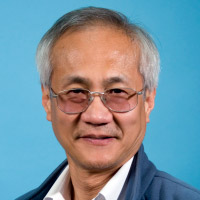Sustainable production management and systems engineering
Research
We specialise in research pertaining to engineering and engineering management systems. We have interests in:
- Sustainable production management systems including production planning and control.
- Lean production systems especially with applications in construction and infrastructure management
- System dynamics and systems thinking in engineering applications
- Human- technical interactions in engineering management systems
- Technology change management and organisational learning
All engineering workplaces and activities require effective management systems that make efficient use of resources. The human element in these technical systems are often critical to the overall system function. In our research, we specialise investigating the socio-technical interactions in such systems with an aim to incorporate challenges such as sustainability, technological change and large complex systems.
Industry partners
Schiavello, Turner and Townsend, CSR-Inclose, Port of Melbourne.
Equipment
Wearable sensors for team-based human performance research such as heart rate monitors, wearable GPS, wearable EEGs and wearable particulate monitors.
Contact us
- Dr Felix Kin Peng Hui

Academic Specialist/Senior lecturer
(Lean systems, Sustainable production management systems, Socio-technical systems)
Email: kin.hui@unimelb.edu.au
PhD projects
Advanced manufacturing and construction of smart building modules
PhD candidate
Supervisors
Felix KP Hui, Tuan Ngo and Colin Duffield
Overview
To meet the needs of rapid urban population growth, building construction productivity needs to improve. This can be achieved by the increased use of prefabricated building modules and the use of digital technology. Digital modelling, design for manufacture and assembly, and the Internet of Things will be used to reduce costs, improve quality and allow mass customization of building modules thereby increasing the uptake of prefabrication and contributing to increased construction productivity (Department of Industry 2020).
This project was awarded to the partners The University of Melbourne, Schiavello Manufacturing Pty Ltd, ERMA Group Pty Ltd, OSEN Group Pty Ltd and Trackem Pty Ltd and runs from 04/07/2018 to 30/06/2021.
Department of Industry, I. S. (2020). “Successful CRC Projects Round 5.”
Design for lean manufacture of low cost housing
PhD candidate
Supervisors
Lu Aye and Felix KP Hui
Overview
This research is aimed at reducing the time and cost involved in multi storey building manufacture. It is geared towards panelised and volumetric solutions and examines the application of lean principles to an offsite building manufacture environment.
The research will focus on quantitative data in the manufacturing processes of multi storey building manufacture time, and cost collected through case study analysis of building manufacture plants in Australia, Sweden, and Japan. It will use simulation by way of system dynamic modelling and Multi Objective Optimisation (MOO) to verify current states, and then to use MOO to suggest improvements to the systems and processes.
It is expected that lean in off-site manufacture can improve processes and when added to a moving production line, reduce time and streamline processes without compromising customisation. The expected outcome is a framework for a lean based moving production line for off-site building manufacturing that allows time (and cost) efficiency, and for customisation.
Dynamics of energy supply and demand in Mexico
PhD candidate
Supervisors
Lu Aye and Felix KP Hui
Overview
Systems modelling of clean energy research & development, production, supply and demand in Mexico.
The aim is to explore the effects of energy policy strategies towards clean energy transitions in Mexico. To achieve this, a new integrated method has been developed for investigating energy policy recommendations to achieve robust policy strategies. The method developed integrates quantitative and qualitative system thinking approaches to better understand the dynamics of historical electricity transitions. A system dynamics model will be applied to predict the effects of energy-related policy strategies in the future. The focus is on public investment in energy research development and demonstration to meet long-term targets on clean energy, energy efficiency, and greenhouse gas emissions reduction.
Researchers




